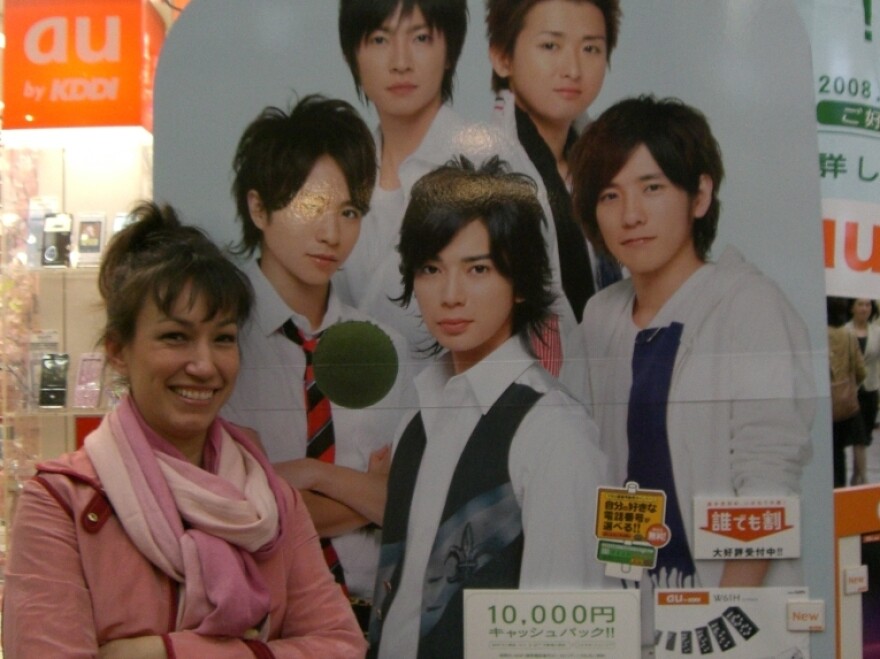It's spring in Japan. News reports on the nuclear disaster, and havoc and destruction wrought by the earthquake and tsunami are intertwined with progress reports on the wave of cherry blossoms sweeping across the nation. In the mountains, wild vegetables are beginning to push through the snow. Many of these weeds are sansai: mountain vegetables prized for their delicate flavor and sold in farmer's markets. On a given weekend, you may see women and a few men carefully poring over the warming earth, foraging for fuki no to (coltsfoot), warabi (ferns) and my favorite, tsukushi (horsetail shoot).
Tsukushi also happens to be the name of my very favorite Japanese heroine. She's the main character of Yoko Kamio's wildly successful manga series, Hana Yori Dango, which loosely translates to Boys Over Flowers, a pun that refers to people's preference for dango, or sweet rice dumplings, over flowers during a cherry blossom viewing picnic. Trust me, it makes more sense in Japanese than English. All the same, you must read this series.
The story begins at Eitoku Academy, where the students have a novel approach to bullying: Every few weeks an unsuspecting student opens his locker, sees a flag hanging inside and hyperventilates. It's a signal that the student will now be subject to mandatory ostracism and torture, while the cliquey F4, scions of Japan's wealthiest families, will sit back and watch. It's Gossip Girl meets Survivor. Into this fray steps young Tsukushi, a scholarship student.
In the summer of 2007, I spent a great deal of time absorbing Hana Yori Dango. Why? I too, attended an elite prep school in northern California with a trenchant cliquey system of which teachers were sometimes a part. I too, cowered from bullies and skipped lunch altogether to avoid having to figure out where to sit, while I longed for acceptance and escape. I'm an adult now, but my adolescent me still cheers for Tsukushi.

Because when Tsukushi's friend is bullied, she takes on Domyoji, the leader of the F4. Naturally, she gets a red flag. Incensed, she declares war on the clique, later marching up to Domyoji and kicking him in the face in the cafeteria. He topples over in full view of his minions and falls instantly in love. So begins a very complicated romance.
By the early 90s when the series came out, the "bamboo shoot" days of post war Japan, in which the country was forced to forage to find something to eat, had ended. But money did not provide an answer to the existential questions of the Japanese youth. Nationwide bullying became so popular an incident as to become a regular feature on the nightly news.
In 2010, Princess Aiko, the only daughter of the Crowned Prince, made headlines when she refused to attend school due to harassment. In Hana Yori Dango, Kamio was making a statement about the impact of wealth on the young. But in Tsukushi, she was also appealing directly to what she knew had made Japan so great: kindness toward others, a belief in justice and fairness, and the ability to regenerate, as wild weeds always do.
"I am a tough, wild weed!" Tsukushi often reminds Doumyoji, herself and us, when facing challenges that might otherwise seem impossible to surmount. With this strength, often missing in depictions of Japanese women in the west, Tsukushi takes on the bullies in her school and her own inner fears, to emerge a picture of composed triumph.
You Must Read This is produced and edited by Ellen Silva with production assistance from Rose Friedman and Lena Moses-Schmitt.
Copyright 2023 NPR. To see more, visit https://www.npr.org.



